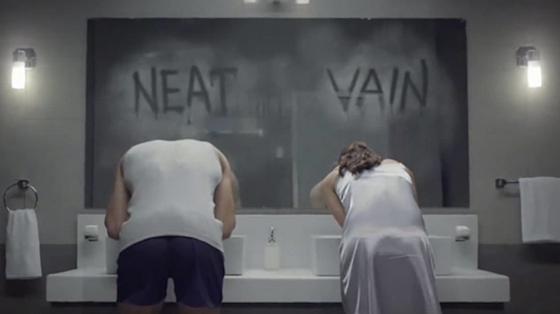
Pantene, a popular shampoo brand owned by Procter and Gamble, has released a one minute advertisement in the Philippines that points out how men and women are treated and labeled differently for their behaviors in their fields of employment.
The video features men and women performing the same tasks in similar professional environments yet being labeled differently: a man is called “persuasive” while a woman is characterized as “pushy;” a man is called “neat” while a woman is described as “vain.”
Manila-based agency BBDO Guerrero, which produced the ad for Pantene, says that it “tackles how labels can hold women back from achieving success, happiness and fulfillment.”
“[The advertisement is] a simple call to action that evokes a sense of empowerment among women by urging them to cast aside these labels and be the best they can be – without hesitation or fear of judgment,” says the agency’s website.
The campaign, which has an associated hashtag of #WhipIt, is part of a partnership between Pantene Philippines and the online news site Rappler. That site has published the results of a survey among citizens in Manila about women’s issues in the workforce in which 65% of respondents said it is more important for men than women to finish a university education than it and in which 70% of respondents expressed belief that men deserve employment more than women. According to the survey, 70% of men in Manila believe that women need to downplay their personalities in order to be accepted.
“It’s a perception that stems from the idea that men are more likely to support extended family compared to women,” said Chay Hofileña, Rappler’s Investigative Desk Editor.
The problem is not unique to the Philippines. In the US, 15% of female respondents in an August 2013 Gallup poll said that they had been hindered professionally by gender bias. Physician Linda Brodsky, the founder of career coaching website Women MD Resources, believes the number is higher.
“Especially in the health-care sector,” Brodsky said in an interview with FOX Business’s Kate Rogers, “I feel it’s well over 50%. This [low figure in the poll] is probably partly because the bias is not recognized or people don’t know how to handle it.”
Pantene is not the first beauty product company to release an advertisement advocating women’s issues and gender perception. Dove, a Unilever brand, has also released advertisements about the impact of society’s perceptions on female self esteem.
Yet Pantene has received criticism for the video, and Time magazine’s Jessica Roy recently called the ad “marketing masquerading as feminism.” Her argument is that the advertisement is not advocating for women’s rights but for the sale of a shampoo to women who care about this issue.
Comparing the Pantene ads to the Dove campaign, Slate’s Katy Waldman wrote, “[Dove] ads didn’t claim soap could put an end to sexism or body insecurity. They simply presented the product alongside less conventionally figured women and asked viewers to reassess their stereotypes.”
“You could endorse the message by buying the soap,” Waldman stated, “but the soap itself wasn’t hailed as a solution. It’s a subtle distinction, but it helps explain why taglines like [Pantene’s] ‘Be strong and shine’ …grate, whereas ones like ‘You are more beautiful than you think’ work. Dove incorporated feminism without hollowing it out.”
“Is there anything more sexist,” Time’s Peggy Drexler asked in an article, “than the notion that professional women need a hair care brand… to help them learn to ‘be strong and shine?’”
Despite these questions, however, the fact remains that women in all sorts of professional environments feel that they are treated differently because of their gender.
In an interview with JSR, A 26-year-old graphic designer in the United States who wished to stay anonymous said, “[Pantene’s ad] strikes so close to home. I turned down a job in South Korea because I thought my gender would prevent me from getting equal treatment in the workplace.”
She continued, “Women everywhere are being labeled and put down no matter where they work. It’s frustrating and heartbreaking.”

